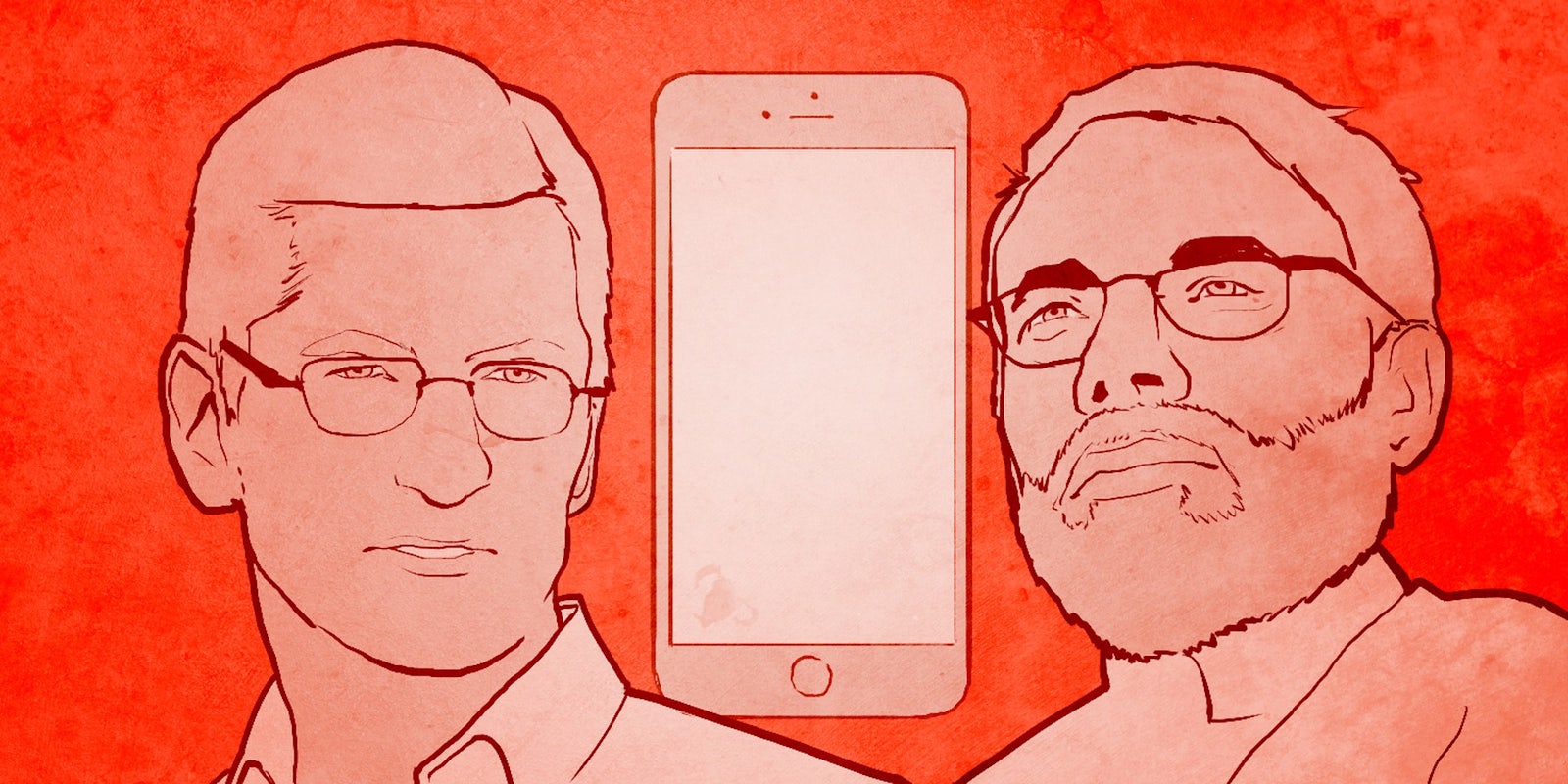Apple CEO Tim Cook and Indian Prime Minister Narendra Modi discussed the contentious subject of encryption when the tech executive met Saturday with the leader of the world’s largest democracy.
In addition to the prime minister’s Digital India program, the two men discussed “issues regarding cybersecurity and data encryption,” and Modi “encouraged Mr. Cook to help the global community to cope with the challenges of cybercrime,” Modi’s office said in a statement.
The meeting follows months of tension between Apple and the U.S. government over the Obama administration’s stance on unbreakable encryption, which FBI officials have said in recent years is making it harder for them to lawfully obtain evidence and track suspects online.
Cook publicly condemned the government in February for trying to force Apple to foil its own security measures to unlock a dead terrorist’s iPhone, and he has emerged as a leading opponent of state and federal efforts to prohibit unbreakable encryption.
The Indian government has dipped its toe into the encryption waters, too, announcing a draft proposal in September that would have forced everyone in the country to store decrypted copies of their encrypted data for 90 days in case police needed it.
Following widespread condemnation of the proposal from domestic and international civil-society groups, Modi’s government almost immediately walked back the proposal, with Communications Minister Ravi Shankar Prasad telling the reporters that the policy “is not the final view of the government” and promising that it would be retooled.
“Some of the expressions used in the draft are giving rise to uncalled-for misgiving,” Prasad said. “I have noted some of the concerns.”
Modi’s plea to Cook to help world governments “cope with the challenges of cybercrime” suggests that the prime minister made one of several law-enforcement arguments against end-to-end encryption during their meeting.
In the United States, officials like FBI Director James Comey and Manhattan District Attorney Cyrus Vance, Jr., have argued that, without limits on encryption, cybercriminals can act with impunity because their communications are effectively indecipherable.
Cryptographers and civil-liberties groups argue that strong encryption is a net benefit to society because it protects critical infrastructure, victims of domestic abuse, dissidents, journalists working under repressive regimes, and other at-risk people and facilities.
Computer-security experts overwhelmingly agree that banning unbreakable encryption would undermine digital security.
India does not universally regulate the strength of encryption, but it does ban phone and Internet providers from using anything stronger than 40-bit encryption—which security experts today consider trivially weak—to protect customer data.
